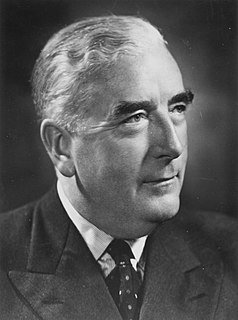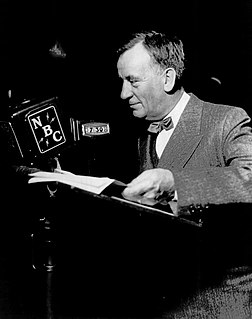A Quote by Blaise Pascal
Put the world's greatest philosopher on a plank that is wider than need be; if there is a precipe below, although his reason may convince him that he is safe, his imagination will prevail.
Related Quotes
The philosopher stands at his desk in the lecture hall, and demonstrates away the soul of man, and with exact thought measures out his atoms and resolves him back to gas and air. But the revolutionary, below in the crowd, hears, and only translates what he hears thus to his brethren: 'Let us drink while we may; property is robbery; this life is all; let us kill and eat; there is no God.
The patient man is merry indeed.... The jailers that watch him are but his pages of honour, and his very dungeon but the lower side of the vault of heaven. He kisseth the wheel that must kill him; and thinks the stairs of the scaffold of his martyrdom but so many degrees of his ascent to glory. The tormentors are weary of him. the beholders have pitty on him, all men wonder at him; and while he seems below all men, below himself, he is above nature. He hath so overcome hlmself that nothing can conquer him.
The musical flags of the world should fly at half mast because truly one of the greatest guitarists in the world and king of the blues has died. I have cherished him and so has the rest of the world who knew him and loved him for his entire career. As we pain, we must celebrate that his music, his style of playing and singing will last forever, from the recordings that he has done and the influence that he has had and will have on guitarists all over this planet. Long live the spirit of B.B. King.
A man may be a tough, concentrated, successful moneymaker and never contribute to his country anything more than a horrible example. A manager may be tough and practical, squeezing out, while the going is good, the last ounce of profit and dividend, and may leave behind him an exhausted industry and a legacy of industrial hatred. A tough manager may never look outside his own factory walls or be conscious of his partnership in a wider world. I often wonder what strange cud such men sit chewing when their working days are over, and the accumulating riches of the mind have eluded them.
The opposition is indispensable. A good statesman, like any other sensible human being, always learns more from his opponents than from his fervent supporters. For his supporters will push him to disaster unless his opponents show him where the dangers are. So if he is wise he will often pray to be delivered from his friends, because they will ruin him. But though it hurts, he ought also to pray never to be left without opponents; for they keep him on the path of reason and good sense.
The poet needs a ground in popular tradition on which he may work, and which, again, may restrain his art within the due temperance. It holds him to the people, supplies a foundation for his edifice; and, in furnishing so much work done to his hand, leaves him at leisure, and in full strength for the audacities of his imagination.
In my acquaintance with John Rawls, I found him to be a simple and honest man, who just by chance also happened to be the greatest moral philosopher of the twentieth century. I would like to think that I could emulate at least his modesty - his refusal to exaggerate his perception of himself and his place in the larger scheme of things - even if my work never compares with his in its importance.
Who does his task from day to day and meets whatever comes his way, Believing God has willed it so, has found real greatness here below. Who guards his post, no matter where, believing God must need him there, Although but lowly toil it be, has risen to nobility. For great and low there's just one test, 'tis that each man shall do his best, Who works with all the strength he can, shall never die in debt to man.
Henry Corbin creates the world - most of all his examination of the imagination and what the imagination was for him. Some philosophers would think of the imagination as a synthetic ability, how you put different things together. Artists more think of the imagination as creativity. So I really like the way that he presents the imagination as a faculty that allows one to experience worlds that are not exactly physical but are real nonetheless.
Christianity set itself the goal of fulfilling man’s unattainable desires, but for that very reason ignored his attainable desires. By promising man eternal life, it deprived him of temporal life, by teaching him to trust in God’s help it took away his trust in his own powers; by giving him faith in a better life in heaven, it destroyed his faith in a better life on earth and his striving to attain such a life. Christianity gave man what his imagination desires, but for that very reason failed to give him what he really and truly desires.
But the blessed Bishop of Geneva taught his nuns another kind of prayer, which even the sick can make: to remain peacefully in the presence of God, manifesting our needs to Him with no other mental effort, like a poor person who uncovers his sores and by this means is more effective in inciting passers-by to do him some good than if he wore himself out trying to convince them of his need.








































